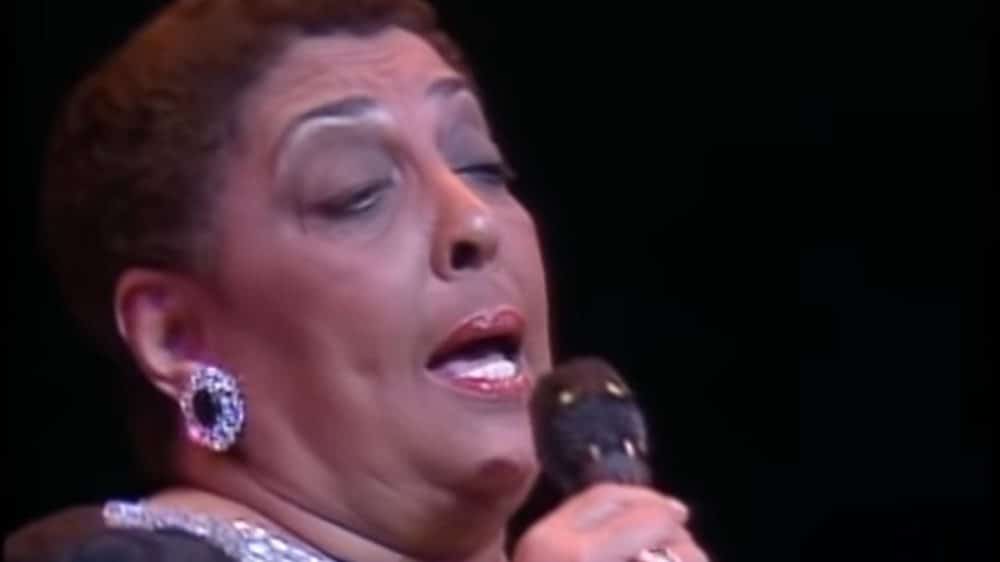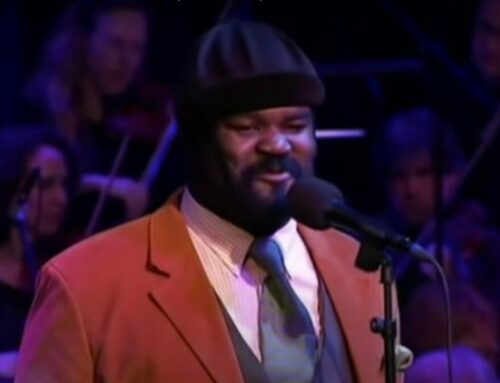I have a confession to make. If there is one singer that I have a so-called acquired taste for, it would have to be Carmen McRae. You love her or you hate her. Her instantly recognizable sound has quite some sharpness and metal, it doesn’t stop ringing in your ears. You can’t hide from her. Though for years, that’s exactly what I did.
Until the moment that I had to prepare some lessons for the Conservatoire in Enschede. While I was going through songs in the train early in the morning – don’t you just love getting up at 5:00 am – Carmen McRae entered my world through my headphones. BAM!
A recording of a live performance at Bubba’s. And holy sh#@! What a groove! And what a personality! It was a true revelation to me. I believe I was finally ready for Carmen. Her live version of Our Love Is Here To Stay is a gem to me. When she simplifies the melody in the phrase “the movies that we know”, she emphasizes the quarter notes, stepping away from the original syncopated rhythm. I looooove that!
Jazz and swing feel (or syncopated feel) are strongly related, and you can get a grip on your jazz timing by replacing the melody by scat vowels: “daaba daaba daaba daaba.” It will make you more aware of whether your timing is spot on, sloppy, or hasty.
But, and here’s my tip for you, have you ever practiced singing mostly quarter notes? Just try it! Your new timing will create an expectation with your listeners, as this (short) repeated pattern will most probably be appreciated as a relaxing moment. Just like Carmen, find some moments in your next song where you simplify the melody by just singing one note (the same note, it has to fit the chords!) repeatedly, and time it real groovy by only using quarter notes. You can use this approach when singing the words, but you can also use it during your improvisation. Rock the quarter notes!
With love, Ilse
My album tip: Carmen McRae – The Great American Songbook (Rhino Atlantic, 1972)
Carmen McRae on Wikipedia:
https://en.wikipedia.org/wiki/Carmen_McRae






